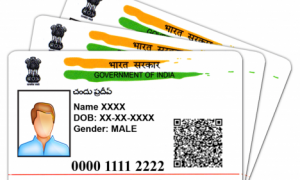US federal government shutdowns can be disruptive, with thousands of workers furloughed and most of them not getting paid on time. Taxpayers won’t get calls returned, there may be longer lines at airports during one of the busiest travel weeks of the year and many national parks will close.
And yet many of the routine functions of government — things like national defense, benefit checks and mail delivery — continue as usual.
The uniquely American phenomenon of the partial government shutdown — a symptom of divided government, a dysfunctional budget process and a constitutional system that requires the House, Senate and president to agree on a spending plan — affects every federal agency differently.
Also Read : Axis Bank Credit Card Latest Rules Kick In From Today 20 December 2024 –Details You Need To Know
In principle, a law dating back to the 19th century prohibits federal agencies from spending money “exceeding an amount available in an appropriation” from Congress. Because Congress usually only appropriates money year-to-year, that means there’s a threat of a shutdown every Oct. 1, when the new fiscal year begins. This year, as in many recent years, Congress passed a short-term extension into December.
But there are exceptions. Government agencies responsible for health, safety and protection of property can continue, which includes military personnel, homeland security and food inspections.
The president must continue to carry out his constitutional responsibilities. So much of the White House Office, the Office of the Pardon Attorney and the US Trade Representative will remain open.
While several immigration services are self-funded through filing fees and might remain operational, certain critical functions face the prospect of grinding to a halt. This includes immigration-related activities within the Department of Labor. This includes immigration-related activities within the Department of Labor.
Also Read : Amazon Prime membership rules are changing starting January 6 2025: New limits and more
In previous shutdowns, USCIS recognized delays caused solely by the government shutdown as excusable. For example, USCIS considered untimely H-1B extension applications without necessitating employees’ travel out of the USA for a visa.
Based upon the law, policy, and our experience, here is how immigration-related services are affected.
DOS (U.S. Department of State):
Visa issuance, passport services for U.S. citizens, and consular functions are expected to continue unless specific consulates face localized funding issues. Various factors, including facility operation expenses, could lead to such localized challenges.
CBP (U.S. Customs and Border Protection):
CBP officers and personnel fall under the category of “essential” workers, ensuring that operations at U.S. ports of entry and exit remain unaffected. However, some applications filed at the border may experience minor disruptions.
ICE – Students (U.S. Immigration and Customs Enforcement): ICE activities related to the Student and Exchange Visitor Information System (SEVIS) are not expected to be impacted.
DOL (U.S. Department of Labor):
The immigration-related functions of the DOL are considered “nonessential” and are likely to be suspended during the shutdown. All pending applications, including PERM, LCAs, PWD requests, BALCA appeals, etc., will be put on hold. DOL personnel will not be available for phone or email inquiries, and the public will not be able to access web-based systems like FLAG. The DOL is anticipated to provide relief for affected stakeholders.
CIS Ombudsman (Citizenship and Immigration Services Ombudsman):
The Ombudsman’s office and online operations will cease during the shutdown.





































